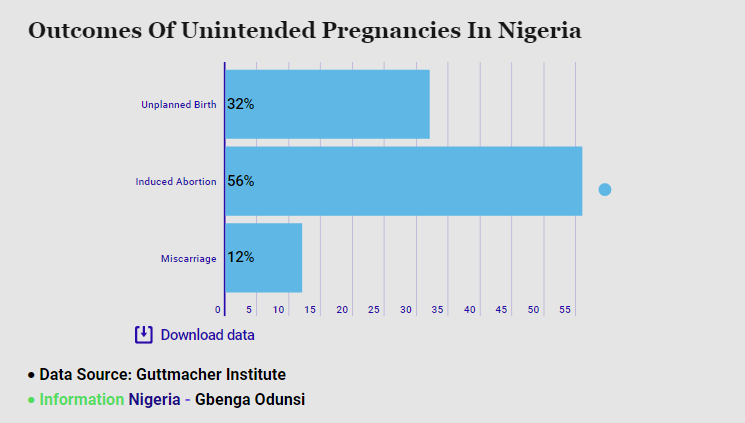
Michael Abiodun
Ja’afaru Ahmed, controller general of the Nigerian Correctional Service, says he has set up a panel to probe Ikoyi Prisons, now known as “Ikoyi Custodial Centre”, following an investigation by Fisayo Soyombo, an undercover journalist.
Soyombo spent eight days as an inmate in Ikoyi Prison — to track corruption in Nigeria’s criminal justice system.
He documented experiences on “drug abuse, sodomy, bribery, pimping and cash and carry operations” at the facility.
But responding in a statement on Tuesday night, Ahmed said those found guilty of the allegations would be punished.
“The attention of the Nigerian Correctional Service has been drawn to allegations of drug abuse, sodomy, bribery, pimping and cash and carry operations in Ikoyi Custodial Centre, Lagos,” the statement read.
“In view of the gravity of the allegations, the Controller General, Ja’afaru Ahmed has set up a high powered panel to immediately commence full investigations into the matter in order to establish the authenticity of the report, identify and bring the culprits to book if found guilty of the allegations.
“The CG who gave the directive in his office in Abuja today stated that the Service is willing to work with the general public as well as relevant stakeholders in the justice sector to actualize the policy objectives of transforming the Nigerian Correctional Service (NCoS) into a modern reformatory institution that operates in line with best international practices.”
Ahmed said the service has no intention of arresting or harassing the journalist over his findings.
“Investigative journalists are partners, who seek the development of the nation, and called for more of such findings aimed at reforming the institution for better service delivery,” he said.
“He therefore called for more constructive engagement with the media and the general public with a view to strengthening the implementation of the Nigerian Correctional Service Act, 2019.”
A youth corps member serving in Cross Rivers state has used his carpentry skills to make desks and chairs for the pupils in the school where he served for a year at no cost.
Teru, in a post shared on his Facebook page, shared how he used his skill to make this change in the lives of his students.
He also shared some pictures on Instagram page and wrote:
‘To God be the glory!
I volunteered my skill to produce desks, tables, benches and shelves for the comfort of over 80 students and pupils of the two public schools (Community Secondary School and St. Georges Primary School) in my host community -Old Netim, Akamkpa LGA. Cross River State.

I must in a very special way appreciate the good people of the community for their support.
Big thanks to my ever supportive principal Mr Emmanuel Eni Sir, you are too much!

My NYSC Inspector, Mr Ubong Effanga, thank you Sir! You’ve been a great source of motivation to us all.
All my friends and colleagues, thanks for being there.
My family at Jos, this is for you!’
For five straight days in September, Gbenga Odunsi, Editor at Information Nigeria, disguised as a hapless boyfriend to unearth the illegal practices of abortions in Lagos hospitals, clinics, and pharmacies. Presented in this comprehensive undercover exposé, his findings reveal series of abortion practices. Odunsi discovered that unskilled providers of all sorts, called “quacks” are widely responsible for the high numbers of botched abortions. Some operate out of their homes or sketchy clinics; two pharmacists he encountered admitted to performing abortions at the back rooms of their shops.
“Abortion isn’t a lesser evil, it’s a crime. Taking one life to save another, that’s what the Mafia does. It’s a crime. It’s an absolute evil.” – Pope Francis
This reporter makes a journey to hospitals, pharmacies, and ‘shops’ in Lagos — on undercover operation— to hoist the lid off fraudulently operating ‘doctors,’ whose activities are on the rise across the state.
A medical officer at a private clinic in Lagos, Mr Ayo Oyadiran, had in 2018, stated that hospitals in Lagos no longer provide abortion services unless it is done to save the life of a pregnant woman. Mr Omidiran confidently made this statement while having a friendly and unofficial discussion with his journalist-friend.
“Sometimes, a woman may not be healthy enough to carry a pregnancy due to some terminal ailments. In such cases, a non-induced abortion is performed on medical grounds.
“A married woman or a lady in a relationship will be advised to consult her partner, but then, she can decide not to notify or consult him.”
“What I am stressing is, you can no longer find hospitals performing dilation and curettage without medical reasons. That era is far gone. Clinics that engaged in it in the past have been shut down the state government.
“Some of these hospitals, Rotunda, a well-known abortion hospital at Orile no longer exist. Even the doctor who performs abortion at the clinic is down with stroke.
“Marie Stopes, a foreign hospital with branches in Abuja and Lagos no longer operates. Their branch in Surelere has been shut down.
“My brother, gone are those days, clinics and hospitals don’t engage in abortion again because it is illegal, he said, with confidence.
The need to ascertain the veracity or otherwise of Mr Oyadiran’s claim informed the decision to go undercover in 2019, to expose the criminals who are masquerading as doctors, causing the deaths of young women in frantic need for abortion.
Abortion happens all the time in Lagos, but behind a mask of silence, and it happens across the health care field. From posh hospitals to local and community clinics and pharmacies in Lagos, the term ‘abortion’ brought dropped voices, tense glances and sometimes, perspiring brows.
“We don’t normally do this,” was a ubiquitous catchphrase in all the hospitals I visited.
Abortion legislation in Nigeria
Abortion in Nigeria is illegal and carries a heavy jail sentence–up to 14 years imprisonment–unless it is performed to save the life of the pregnant woman. Abortion is governed by the Criminal Code in the southern states, and the Penal Code in the northern states.
Nigeria’s abortion laws make it one of the most restrictive countries regarding abortion. The Criminal Code is currently enforced in southern states. The abortion laws of the Criminal Code are expressed within sections 228, 229, and 230. Section 228 states that any person providing a miscarriage to a woman is guilty of a felony and up to 14 years of imprisonment. Section 229 states that any woman obtaining a miscarriage is guilty of a felony and up to imprisonment for 7 years. Section 230 states that anyone supplying anything intended for a woman’s miscarriage is also guilty of a felony and up to 3 years of imprisonment
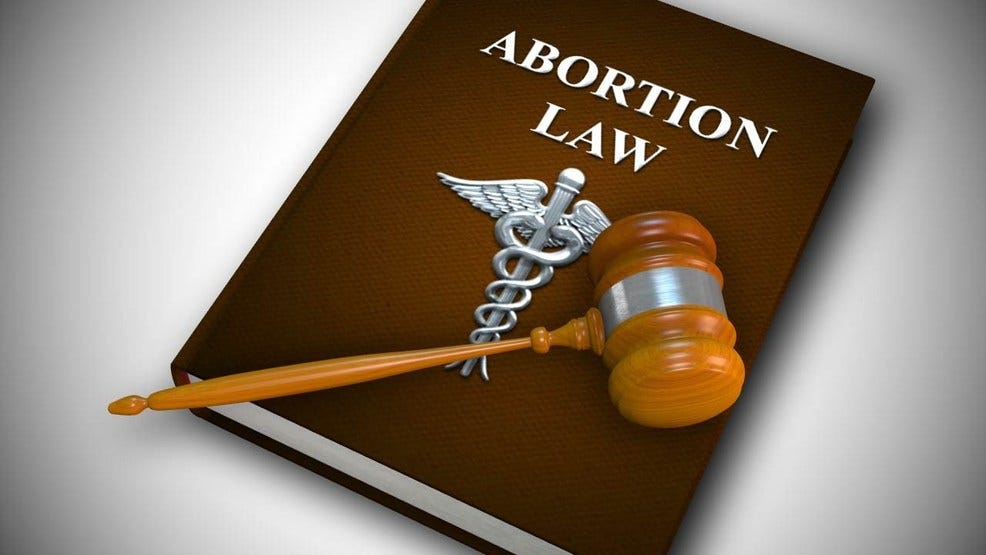
The Penal Code operates in northern states, with abortion laws contained in sections 232, 233, and 234. The sections of the Penal Code parallel the Criminal Code, besides the exception for abortion with the purpose of saving the life of the mother. The Penal Code’s punishments include imprisonment, fine, or both. The offenses of these codes are punishable regardless of whether the miscarriage was successful. No provisions have been made to the Criminal Code making exceptions for the preservations of the mother’s life.
Section 297 provides that “a person is not criminally responsible for performing in good faith and with reasonable care and skill a surgical operation…upon an unborn child for the preservation of the mother’s life if the performance of the operation is reasonable, having regard to the patient’s state at the time and all the circumstances of the case”.
Lagos State of Abortion
It was 9.30 a.m. the cloud was pregnant on this day, thus creating a gloomy picture of the sky; a picture which largely mirrored my seemingly impossible mission — to uncover an abortionist in Ikeja Area of Lagos. A quintessentially clean, calm and quiet clinic environment sits at along Airport road in Ikeja. The clinic is sited 400 meters away from the Nigerian Navy barracks along the same axis.
With its pale leather sofas and brightly-lit reception, the sleek office could be mistaken for an accountancy firm, but, despite its superb appearance, this hospital is an abortion centre.
I quietly approach one of the medical officers on duty, whom I later knew as Demola. “Please sir, I need your help,” I start, stooping by the man, a dark, well-built frame who spoke in measured tones.
“I have a serious problem. My girlfriend is four months pregnant. I have to come make inquiries if there is a way you could help me. We don’t want the baby, sir.” Demola, who combines laboratory with medical services ran a quick, furtive glance over me and must have concluded that I truly had a problem.
“What is your name?” he asks softly, his voice rich in sympathy.
“Mide,” I reply, “Olamide”.
“See, nobody will help you with this request,” he begins slowly, in hush tones.”
“You would be putting her life at risk by attempting to remove a four-month-old pregnancy.
“Why did you wait till four months before taking this step?
“Even if we are to do anything, where is the girl in question?”
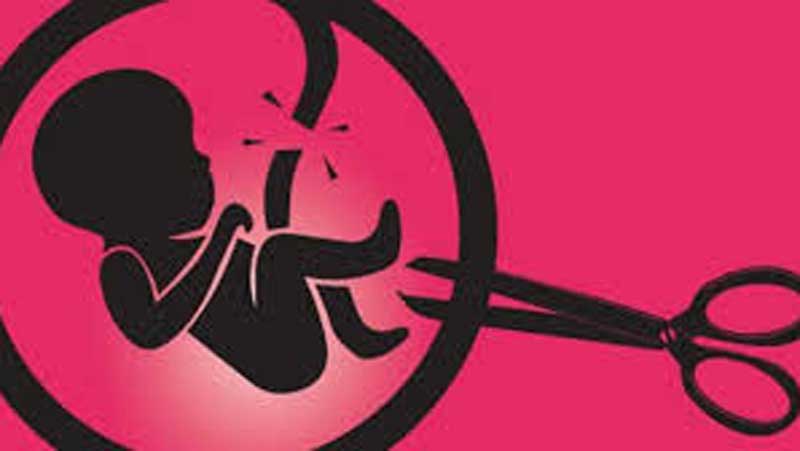
I told Demola that a prophet had warned us not to abort the pregnancy, adding that I only came to make inquiry and if we are able to agree on the terms, I would bring her in the evening, after the close of work.
But realizing how much he would make from the procedure, Demola asks me to bring my girlfriend by 6pm, with a sum of — wait for it — paltry N8,000. According to Demola, no test would be conducted; no pre-abortion services will be carried out. He says the entire operation will last between 10- 15 minutes, after which my girlfriend will be given Ampiclox capsules. “Don’t worry, she will be fine after 24 hours, Demola says.
At this hospital, pregnant ladies are not offered in-depth counselling on their decision to request a termination — despite the questionable grounds. The life of a woman is only worth N8,000, despite telling him a prophet had warned us against abortion.
I stood outside the hospital for more than two hours, gisting with one of the security men on duty, and keeping my eyes wide open to monitor the inflow of patients to the hospital. In my estimation, I counted eight young ladies troop in at intervals to the clinic. One would assume all the ladies are sick and came for treatment, right?
I asked one of the security man, whom by now, I had gossiped and shared experiences that cut across board with. I told him of my predicament: My girlfriend is pregnant and I am not ready for the baby…and all that. I made him understand I wasn’t sure if such operation can be carried out in the clinic, which is why I didn’t approach the doctors. As I was saying this, a tall, skinny man, who had been carrying himself with the swag of Chief security offer, interrupts. “Where is ya girlfriend?, he speaks in Igbo-English dialect.
“When you bring her, ask for Doctor Henry, he will help you.”
My next stop was a clinic, few meters away from Mr Biggs at Obanlearo in Ketu Area of Lagos. I stared at the signpost, it reads: ‘Deji Clinic’. I feigned as a boyfriend seriously in need of a doctor to terminate the two-month-old pregnancy of my girlfriend. I approach a tall, dark young medical officer donning a red shirt and black trouser. I told him the same story: I have a major challenge; my girlfriend is pregnant, and I wanted to see if a D and C can be performed on her.
In hush tone, “Why do you want to terminate it”, he asks.
After giving him reasons which are not enough to conduct an abortion, the doctor opens up, “we don’t do such here.” He, however, directs the journalist — although he thinks he is just a random member of the public — to “a professional nurse who knows her onion and has performed the procedure on several ladies.”
He handed me a piece of paper on which he scribbled: 0805*45*71*. I thanked him and left.
Acting on specific information, I made a short visit to another government-approved hospital at Alapere Street in Ketu, (name witheld). I met a short, dark lady at the reception. With a sombre look, I describe my plight to her. The receptionist, with a ‘who-is-this-evil-man- look’ bluntly tells me “no, we don’t do it here.”
I tried to ask if she could direct me to where I can get a D and C done for my girlfriend. The nurse — one quick glance at her and you would conclude she is a ‘Pastor — casts another desperate look at me. “Mr man, I say I don’t know,” she says, in a brusque, brisk tone.
As I exited the clinic and descended the stairs of the building. I knew that my second strategy for exposing this abortion clinic had just been scuppered…or so I thought.
I went back inside the hospital to request for the doctor’s number. I gave him a call the following day, and the following conversation ensued:
“My name is Tunde, a friend of mine gave me your number. My girlfriend is two months pregnant; we are not ready for the baby. My friend told me you can help us solve the problem, I said.
The doctor, who never bothered to confirm which of his clients referred me, was quick to affirm that he can abort the pregnancy. “When last did she see her period? he asks. The doctor asks me to come with N22,000 to terminate a 2-month pregnancy. I told him I will bring my girlfriend in the evening. I never went back there.
The following day, I set out to meet one Mr. Seye, a pharmacist who specializes in illegal abortions. His shop is situated at Ogba Bustop, adjacent Tantalizers eatery, 200 meters from West African Examination Council (WAEC) office. His shop sits in-between a line of cosmetic shops. I glanced at the signpost, it read: ‘Five Dees Pharmacy’.
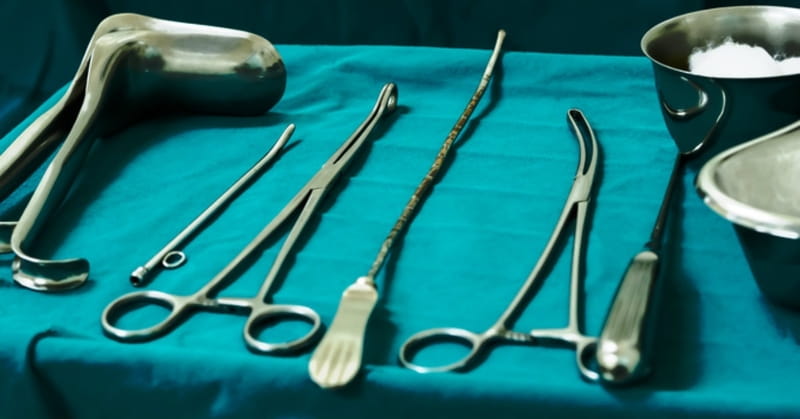
This time around, I went with a female friend who is not pregnant. Earlier, before the commencement of this investigation, a female friend, whom I had planned to use to disguise as my girlfriend, pulled out of the game for fear of being recognized and attacked by the ‘bad men’ after the story gets published. A police officer, whom I hinted of this investigation, had warned us to be ready for the consequences of exposing the abortionists. He, however, advised that “I apply wisdom and discretion in order to stay alive to tell more stories”. Luckily, two days into the investigation, alone, I was able to convince another lady to assist in pushing the investigation further.
Posing as a boyfriend, I ask Mr Seye to give me a drug that can be used to abort a pregnancy. With a curious look, Seye asks why I wanted my girlfriend to use a drug rather than have a ‘safe D and C’.
“I don’t know anywhere I can get that done; I am new in Lagos,” I reply.
Seye was quick to recommend himself as a qualified pharmacist, priding and reeling out the number of successful D and C’s he had carried out in the last few years.
He tells me he must carry out a test before any operation can be done.
“Follow me,” he says, after insisting that I would follow my girlfriend to where the pregnancy test will be carried out.
Seye, an averagely tall man, perhaps in his 40s, led the way to a small room inside his pharmacy. It turns out, the pharmacists, carries out the operation in a shack-size room right inside his pharmacy.
He did not take any record of my girlfriend, neither did he ask for any symptoms of pregnancy. It appears that, his motive was the money that he would receive from the operation. It took him less than ten minutes to conclude that my girlfriend is pregnant. This conclusion, he came to, after pressing her lower belly a few times. Seye says a foetus was present and an abortion must be done. We convinced him that we will be back for the operation the following day.
Unintended Pregnancies On the rise
Nigeria is not the only country in Africa where risky abortion is on the rise. About 93% of women of reproductive age in Africa live in countries with restrictive abortion laws. Medical experts say the deaths associated with unsafe abortion will continue to rise until either unintended pregnancies are significantly reduced or putting systems in place to ensure safe abortion.
While the number of unplanned pregnancies averted due to the use of up-to-the-minute methods of contraception continues to rise with the latest estimate nearing 1.5 million, the number of unintended pregnancies at risk of unsafe abortion in the country continues to rise as shown below.

The Guttmacher Institute connected unsafe abortion in Nigeria to the country’s high maternal mortality figures. While noting that abortions are common, and most are unsafe because they are done clandestinely, by unskilled providers or both, the institute noted that the practice of unsafe abortion is tightly connected to the death of many pregnant women in the country.
Black Market Abortion
The failure of hospitals to provide abortion services to patients, irrespective of their reasons, has created a booming business for anyone who can claim he or she can provide such.
Some other people in masquerade, parade illegally operating ‘clinics’ under the guise of having the healing hand. Such is the story of the sexy and quack abortionist, Mariam.
Mariam, a fashion designer, operates a tailoring shop in Isolo Area of Lagos State. It turns out, the tailoring shop is just a cover up for booming abortion business. Her shop is located at Ajao Estate, a stone throw from MTN connect office. The shop is situated in a green building housing a few line shops.
I had earlier told a friend, Mosunmola, that I needed a pharmacist who could help me terminate my girlfriend’s two- month unwanted pregnancy. She informs me of a tailor who combines her job with aborting pregnancies.
As usual, my ‘fake’ girlfriend and I paid a visit to Mariam’s shop. Entering the shop, you would have no reasons to doubt that any other activity goes on around there aside cutting and sowing of materials. There are three tailoring machines in the shop, littered with different catalogues of different cloth designs; a chest freezer, a wooden table for ironing, and a basket full of clothes. Don’t be deceived; this tailoring shop is an abortion center.
I told Mariam one of her clients referred me to her. After the entire introduction, Mariam took us to the inner room which had a bed for examination and abortion. The ‘tailor-doctor’ charges N1000 as consultation fee.
Over the next quarter-hour, she would give me a blow-by-blow explanation of the two methods of abortion. According to her, my girlfriend is meant to choose one.
“An abortion for a teen looks like a 1-2 inch blood clot on a menstrual pad in one day. It is not a human life.
“Medication abortion can safely be used up to the first 10 weeks of pregnancy”
“You can take pills – mifepristone and misoprostol – 24 to 48 hours apart.
“With these drugs, you will begin to miscarry after few minutes, even before you get home.
“There is also D and C. In this one, a tube is inserted through the vagina and a machine is used to gently evacuate the fetus and other tissues.
“So it depends on your body system. You can choose anyone.”
We decided to go for D and C. She tells us her operation fee is twenty thousand naira. For some minutes, we haggled over the price before she finally settled for ten thousand naira.
“I’m sorry, uncle, N5,000, cannot do it,” says the fair-complexioned lady in a courteous, in fact, apologetic, tone.
We told her we would go and hustle for the money and come back the following day.
Abortion at Home
After exiting Mariam’s shop, I called 0805*45*71*. (Remember a doctor at Deji Clinic had earlier referred me to a ‘professional nurse’. She gave me her price, fifteen thousand naira, and I requested for her address. I headed to her house at 33 Ijero street, Agiliti, Mile 12, Lagos.
“Who are you,” asks a robustly-built man. With his swag, one can easily deduce he is the security man employed to secure the large compound housing three block of flats.
“Looks like you’re a stranger here?” he says, in a nondescript tone that is neither interrogative nor sentential. I called the nurse again, then she came outside to pick me. I later got to know her name as Chinwe.
Nurse Chinwe, a calm, soft-spoken, simple lady with a suspiciously innocent mien, swings her voluptuous, scantily-covered hips as she leads me to her apartment.
It was a very short visit. I had deliberately made it short in other not to get ‘caught in the act’
I told her my girlfriend had gone to work and I only came to see her and have some discussions before bringing my girlfriend later in the evening.
“I believe you can do a clean job without any complication, since it was a doctor that directed me to you. I don’t want any issue at all. I prefer a clean job”, I told Chinwe.
Switching between English and Pidgin, the three-minute tutorial that followed confirmed nurse Chinwe conducts abortion procedure in her two-bedroom apartment.
“You said your girlfriend is two months pregnant abi? Congratulations, she teased.
“But the safest period to abort a pregnancy is in the first trimester, and from what you have said, your girlfriend falls in this category.
“Even the Doctor wey direct you come here know say my work dey clean.
“No be today I start this thing, ehn, no worry,” she added.
I, however, insisted I wanted to take a glance at the room where the procedure will be done, as this would inform my decision on whether or not to bring my girlfriend. She hesitated for some time, but, seeing that I was bent on my stance, and because she doesn’t want to lose ten thousand naira, Chinwe reluctantly led me into one of the rooms.
The room contains two beds, two mattresses and pillows. In spite of scrubs, visible signs of bloodstains decorate the spreads laid on the beds. Beside one of the beds is a box filled with gloves. Then there is cotton with which she wipes off blood and other stains after the operation.
When clients become sick or feel like vomiting, there is a medical renal dish at their service. Her abortion tools are placed on a wooden table at the edge of the room. A 32inches Samsung LCD sits comfortably on the white painted wall. A GOTV decoder sits on a black shelf below the television.
A table-size refrigerator poses at the other end of the room, while an industrial OX fan, just beside the TV, blows at an average speed. Apparently, clients who decide to take some rest can easily feel at home inside the abortion room.
After seeing all these, I told the abortion-nurse I would be back in the evening with my pregnant girlfriend.
Chinwe performs the operation alone without any assistance from any nurse or medical personnel.
As I was leaving Chinwe’s apartment, a lady saunters in.
“You see that lady that just came in, she is also here for what you came for”, she says, with a full smile.
Availability Of Abortion Drugs
The price of black-market abortions differs widely; the cheapest procedures tend to be the most dangerous. In spite of legal restriction, abortion rate is still high in Nigeria. For as low as N1,000, a woman could procure abortion drugs in the country. While abortion practices are illegal in hospitals, Information Nigeria confirmed that abortion drugs can be easily gotten over-the-counter in chemist shops in several parts of the country.
Where mifepristone is not available, misoprostol alone is being used by abortion seekers to remove unplanned pregnancies. Misoprostol is available under the brand names Cytotec, Miso-fem and Vanaprazol – 200, while Mifepristone is available as a combipack under the brand name Mifepack.
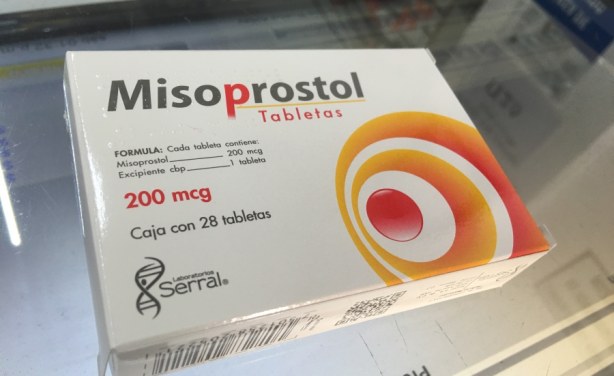
Many pharmacies sell misoprostol, a drug for post-partum haemorrhage that can also be used to induce abortion. While the sale of misoprostol requires a doctor’s prescription, many pharmacists willingly sell it over the counter.
“I was denied abortion at a hospital sometimes last year, but then, I went to a chemist very close to that same hospital and the man I met in the shop gave me misoprostol without asking questions,” a 27-year-old lady who does not want her name in print told this Journalist in Lagos.
According to her, she was panicked to ask for advice on abortion when she was denied the service at the private hospital but the experience at the pharmacy was a sharp contrast. She was told on what to use, how to use it and what to do afterwards.
This investigation reveals that dilation and curettage can be done by quacks for N10,000 while hospitals charge about N22,000 for same procedure.
Quote: “The job of an investigative journalist is about life and death. Any miscalculation will lead to fatal consequences” – Anas Aremeyaw Anas
Editor’s Note: Names of some clinics were intentionally hidden to avoid girls and other abortion seekers from taking advantage of it. Further, with the aid of a secret camera, this journalist secretly filmed and recorded doctors and quacks he had encounters with. Hence, video and audio records of doctors agreeing to perform abortion are available on request by security agencies.
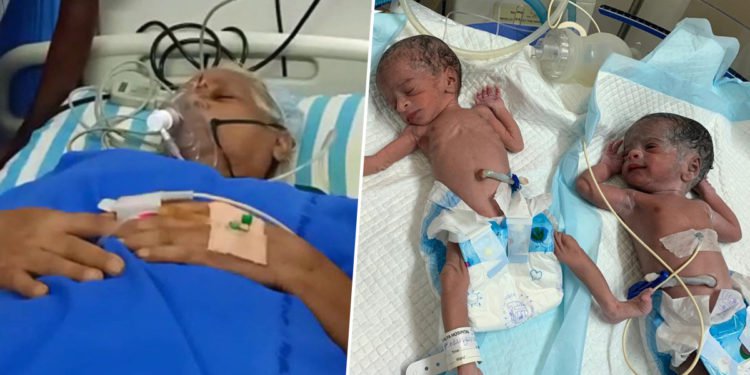
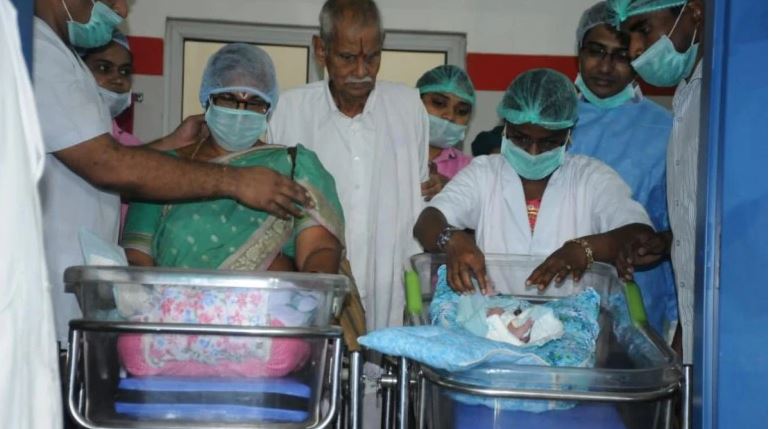
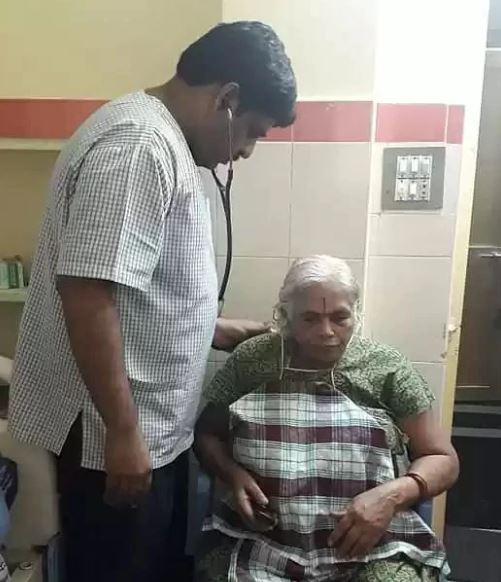
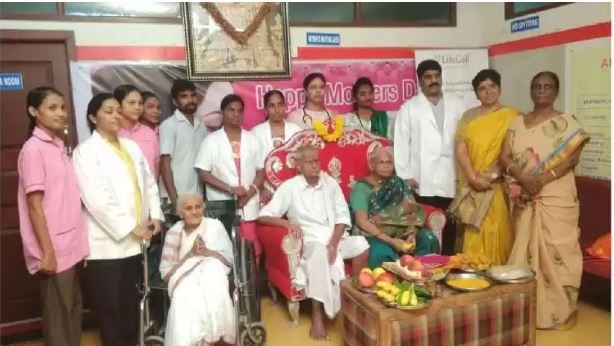
Operation wetie was the name given to the series of riots that characterized both the political and civilian scene of the defunct Western Region of Nigeria in the 1960s. Operation wetie, in the context of the crises, means to douse or wet politicians, their properties and supporters with petrol and set them ablaze. The background of the riots is traced to the 1962 Action Group crises which was a result of the struggle for power between two political leaders of the Western Region and Action Group (AG), Chief Obafemi Awolowo and Chief Samuel Akintola.
The bloody riots started with an intra-party disagreements between the leader of the Action Group, Chief Obafemi Awolowo, and his deputy, Chief Samuel Ladoke Akintola. It all began when Chief Obafemi Awolowo gave up his post as the Premier of Western Region to seek power as the Prime Minister but lost and settled as the leader of opposition in the federal parliament. Though the premiership mantle was handed over to Akintola but Awolowo still retained his post as the leader of the Action Group. However, Samuel Akintola did not reckon with Awolowo’s decision to remain the leader of the party and this brought about division of interest and loyalty in the Action Group. A faction of the Action Group pledged loyalty to Awolowo while another supported Samuel Akintola. The first open head clash between Obafemi Awolowo and Samuel Akintola was in 1961 when the latter went on an economic mission to Europe. The quarrel occurred when Chief Akintola rejected the men Chief Awolowo nominated for the mission and substituted them with the men of his choice. Obafemi Awolowo tagged the incident disrespecting but allowed it to pass by without drawing members of the party into a fight. After the mission nominees scuffle, the two leaders got into another disagreement when Samuel Akintola dismissed the old board members in Western Nigeria’s public corporations like the printing corporations, the housing corporation, the radio and tv corporation, and replaced them with his own nominees. As the premier and leader of the Action Group’s parliamentary, Samuel Akintola felt he has the right to do what he did. Another factor that caused the 1962 Action Group crises was the difference in ideology. A faction of the Action Group suggested that the party should drop its ideology of democratic socialism which called for the introduction of mixed economic policies while another faction insisted it should be retained.

Bode Thomas, Obafemi Awolowo and Samuel Akintola
However, on the 1st of February 1962, the post of the deputy leader of the party was scrapped at the annual Action Group congress which was held in the Northern city of Jos, capital of today’s Plateau State. The scrapping of the post of deputy leader stripped Samuel Akintola and some of his loyalists of their offices. They include Chief Ayo Rosiji who was the Federal Secretary of the Action Group and some other four ministers.
Later in May 1962, the Western House of Assembly attempted to remove Chief Samuel Akintola as the Premier of the Western Region after the party had passed a vote of no confidence on him. This attempt led to an open brawl on the floor of the house. However, the then Governor of the Western Region, Sir Adesoji Aderemi who was also the Ooni of Ife relieved Chief Akintola of his post as the Premier of Western Region and installed Alhaji Dauda Adegbenro as the new Premier. This caused serious uproar and unrest in the Western Region which later resulted to chains of violence. Several people were killed and properties worth millions were destroyed in days. Shortly after, a state of emergency was declared throughout the Western Region and Adesoji Aderemi was sacked as the Governor while Dr. Moses Majekodunmi (the Federal Minister of Health) replaced him as Administrator (interim premier of the Western region) on the 29th of May, 1962. This became the first time in the history of Nigeria that a state of emergency would be employed to curb violence. Political opponents and their families were set ablaze, and their properties too, some of which were looted. Hundreds of vehicles and houses were razed in the riots tagged operation wetie which left many people dead and incarcerated. The whole of the Western Region was indeed thrown into a state of anarchy.

However, on the 31st of December, 1962, Chief Samuel Akintola returned to power as the Premier of Western Region after an alliance between himself and Ahmadu Bello who was the Premier of Northern Region. It was alleged that their alliance earned Chief Obafemi Awolowo a ten-year prison sentence on the count of treason. Chief Samuel Akintola, together with his Deputy Premier, Remi Fani Kayode (Fani-Power) went further to form a political alliance with the Northern People’s Congress (NPC), the Midwest Democratic Front, the Dynamic Party, the Niger Delta Congress, the Lagos State United Front and the Republican Party and thus formed a new political party named the Nigerian National Alliance (NNA)while NCNC of Dr. Nnamdi Azikiwe allied with Obafemi Awolowo’s Action Group (AG), the Kano People’s Party (KPP), the Northern Progressive Front (NPF) the Zamfara Commoners Party (ZCP), the Northern Elements Progressive Union (NEPU) and the United Middle Belt Congress (UMBC) and all together formed the United Progressive Grand Alliance (UPGA). And when the parliamentary election came in 1964, the Nigerian National Alliance (NNA) won with a total of 198 seats out of 312 seats and out of the 198 seats won by NNA, NPC held 162 while NNDP of Akintola claimed 36 seats. It is worthy of note that the election was massively rigged. When the manipulated results were announced, unprecedented violence sparked off in the Western Region of Nigeria. Several people were killed daily and countless properties were destroyed too. This is one of the major factors that brought in the first coup in Nigeria on January 15 1966.
Thanks for reading,
Oldnaija.com
References:
- Diamond L. (1988) Crisis and Conflict in the Western Region, 1962–63. In: Class, Ethnicity and Democracy in Nigeria. Palgrave Macmillan, London [Accessed, January 15 2018]
- 1964-1965 Elections; Globalsecurity.org [Accessed, January 28 2018]
- THE CRISIS THAT TRUNCATED THE FIRST REPUBLIC; Vanguard Community; February 25, 2015; [Accessed, January 18, 2018]
- Elections in Nigeria; African Elections Database [Accessed, January 21 2018]

The government also said the cleric had the full support of the Iranian government to achieve this aim.
The government made these claims in a counter-affidavit it filed against IMN’s motion challenging the Federal High Court’s order of July 26 proscribing the group.
A well known yoruba social media bully Ester Esabod Aboderin was attacked at the court house in Dublin by one of her victims who was frustrated by the way and manner in which Esabod have been defaming her character.
Esther Esabod Aboderin was attacked at a court in Dublin.
Esther who is well known as a yoruba social media bully got attacked by one of her victims who was frustrated by how Esabod have been defaming her and spoiling her name.
Watch video
Share this:
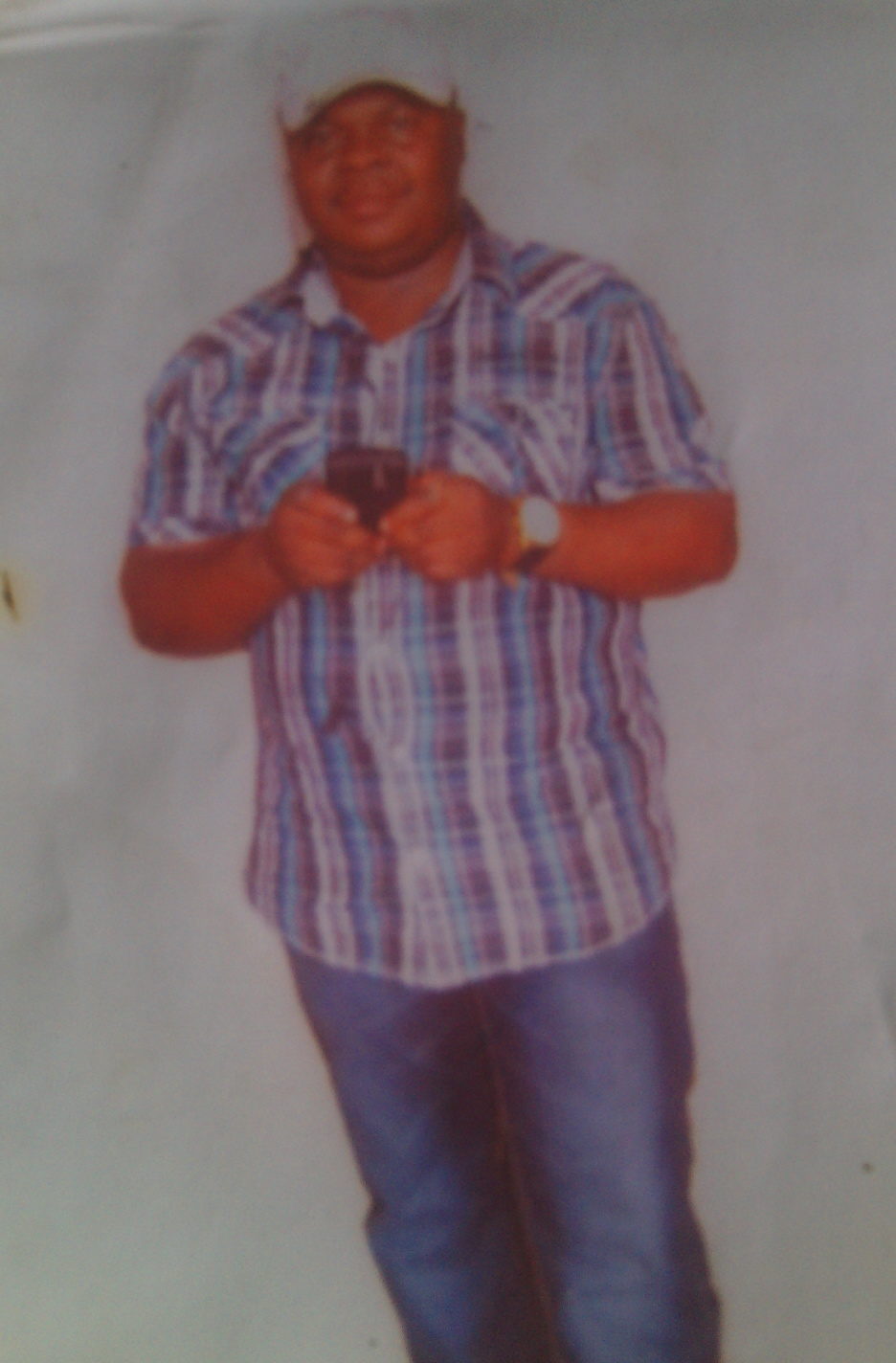

Twitter went awash over the weekend with Nigerian and Kenyan users yet again engage in another social media banter. The war sparked by Nigerian journalist, Kemi Olunloyo, caused users to exchange insults and trolls on the social media platform.
In a tweet, the journalist announced that she was turning down an invitation to attend a Nairobi media event because of the bombing in the neighbouring Somali capital, Mogadishu. She added that the bombing, which claimed six lives, has made Nairobi unsafe for her.
Kenyan fans, I will no longer be attending #AWiM19 African Women in Media due to a SECURITY THREAT as a result of the Al-Shabab bomb attack today in the Mogadishu Mayor's office. I will not be in #Nairobi tomorrow. Al-Shabab terrorists often operate in Kenya #Dusit#KemiOlunloyo
This particular post infuriated Kenyans who felt she was disrespectful to their country. Users from both sides jumped into the fray, posting ridiculous and hilarious tweets, trading insults that attacked each nation’s weaknesses while highlighting the strengths.
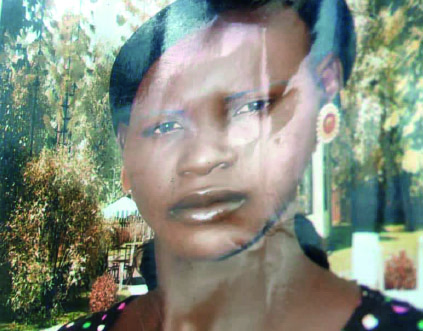
The story of how Margaret, Wakili’s 27-year-old, six-months-old wife was raped, strangled and killed, on the farm, by suspected Fulani herdsmen in the early hours of Monday, 15 July, 2019 is one that is sure to be told over and over again, for a long time to come, wherever two or three are gathered to share sad stories of the herdsmen rampage.
Now, in the light of the threat by the herdsmen to launch further attacks of such nature on the largely agrarian community, they have vowed not to go back to farm until the issue of security of their lives is sorted out by government. This is as Wakili, the man at the centre of the tragic drama, is calling for justice to be done by getting the evil perpetrators of the dastard act promptly arrested and be made to face the wrath of the law.
Traumatic account of the tragic incident
When Wakili woke up very early on that fateful day to go to his farm, he didn’t have any premonition that he was going to lose his wife in such a cruel manner. He had reportedly instructed her to cook and come with the food to meet him on their farm said to be far from their residence. The wife with whom he tied the nuptial knots in December 2018 and said to be six months pregnant, kept to his instruction, as usual.
She dutifully cooked the food and took it to the farm without any inkling of calamity that would later consume her and her unborn baby. According to her husband, they were working on their maize farm and cracking jokes and laughing with each other when the woman suddenly raised her head and saw seven heavily armed Fulani herdsmen advancing towards them. She drew her husband’s attention to the looming danger.
On sighting menacing approach, he quickly grabbed his wife’s arms and, together, they started running for safety, as fast as their legs could carry them under the circumstance. But the killer herdsmen reportedly ran after them and started shooting. But luckily, the bullets didn’t hit them. But as they ran so also did the herdsmen pursued them. But midway through the race for safety, the woman, given her state, stopped to catch some breath.
At that instant, her husband, concerned that that could give their pursuers the chance they were looking for, stooped down and allowed her to climb onto his back, and together they continued to run, with the herdsmen still in hot pursuit. But mid-way through their escape bid the thoroughly frightened woman who was also not feeling comfortable with the impact of the running on her body slipped from her husband’s back and came down hard on the ground. But as the herdsmen closed in, she got up immediately and headed to a different direction while his undecided and confused husband ran towards another direction.
It was within that few moments of separation that death on the wings of man’s inhumanity to a fellow man struck and snatched Margaret away from Wakili and turning a momentary separation into a permanent one. According to details provided by her husband, as their pursuers got nearer, the woman fell on her back and lay there panting and shouting for help. And, that was how the herdsmen said to be five in number eventually caught up with her, and without showing any pity to her, took turns in raping her while her husband cried and shouted himself hoarse while calling for help. But, as it were, none came. They later strangled her and put a bullet into her body through her rib cage to finish up the horrifying deed.
Reliving a horrific incident
It was a horrified and traumatized Wakili who wailed all the way home to call his relations and friends to the scene of the incident. Margaret’s body was later recovered and buried according to Irigwe traditional rites. Without a companion with whom he can share time and crack jokes together, today, Wakili is left with nothing but anguish, sorrow and tears. “I am speechless, hopeless and helpless at the moment,” he told Saturday Sun. “I am now left in the farm without my wife and my unborn baby without knowing where to start.”
Reliving the painful memory of that day, he said: “As usual, I go to the farm very early and my wife will later bring food for me.. It was the same thing that played out that fateful day. I left home very early to go and to do some work so that when she comes with food, I would eat and work a little and then we wewould return home together.
“She arrived the farm without any problem on the way. I had eaten and we were cracking jokes and laughing together while we worked on the farm. But after sometime, my wife stood up and sighted some people advancing towards us. She drew my attention and when I saw them, I noticed that they were Fulani herdsmen armed with weapons. I told her to leave what she was doing so that we can go. We left immediately but they started running after us.
“I held her hand and we started running even as they advanced towards us. At a point, my wife started getting tired because of her state. I stooped and carried her on my back and continued to run. But I noticed that as the killer herdsmen were getting closer and closer, she became frightened and slipped away from my back and fell down. And, while I was wondering what next to do, she got up almost immediately and headed to a different direction.
“Five of the men ran after her while the remaining two came after me with AK-47. Midway she fell on the ground while I continued running until I escaped from the pursuing men. I got to a safe place and started shouting and crying for help but there was nobody living close to the farm. From where I stood, I could hear my wife crying, groaning and pleading for mercy as the Fulani herdsmen took turns in raping her. They later strangled and shot her dead by her ribs. After executing the wicked act, I could hear them chanting victory songs and threatening to come back for others. They said they would continue to kill people in the farm like that. Then they left towards Kabonaba along Rukuba settlement.”
Cry for justice and help
Asked what he wants, he said: “I want the security men to fish out those behind the killing of my wife. I won’t forgive them for what they did. They must pay for their evil and wicked action.”
Wakili who said he would live the rest of his life in painful memory of that black Monday, called on government and international community to urgently intervene else many people will lose their lives during the farming season. He said the incident has created fear in people and added that most people will not want to go back to their farms for fear of being killed. “I narrowly escaped death and you are expecting me to go back to the farm without security?” he queried.
Publicity Secretary of Miango Youth Development Association, Zongo Lawrence who share in his sorrow, decried the cruel killing.
“It is sad that Margaret Wakili was killed in her farm by Fulani militias,” he said. “In the last two years, 22 people had been killed in the same village. We want the state and federal government to assist us. Many farmers might not go to farm because of this kind of incident. A lot have happened in this manner and we cannot allow this to continue.”
He adds that: “There is need for government to beef up security in the rural villages for farmers to go to farm in groups. If not, the state will experience famine this year. We have so many people that have been displaced and government has forgotten about them. Those people need to be visited.”

